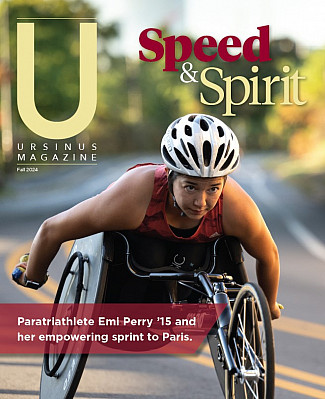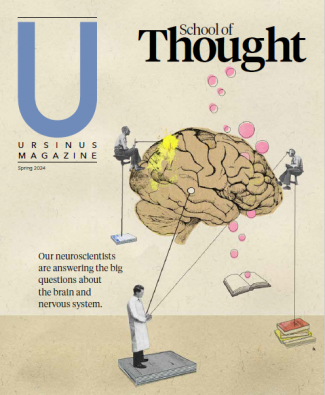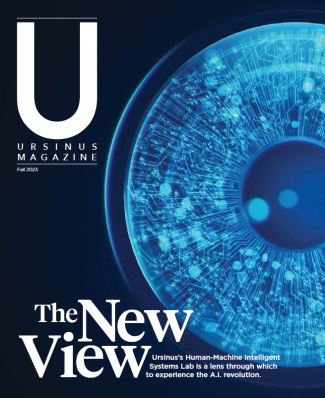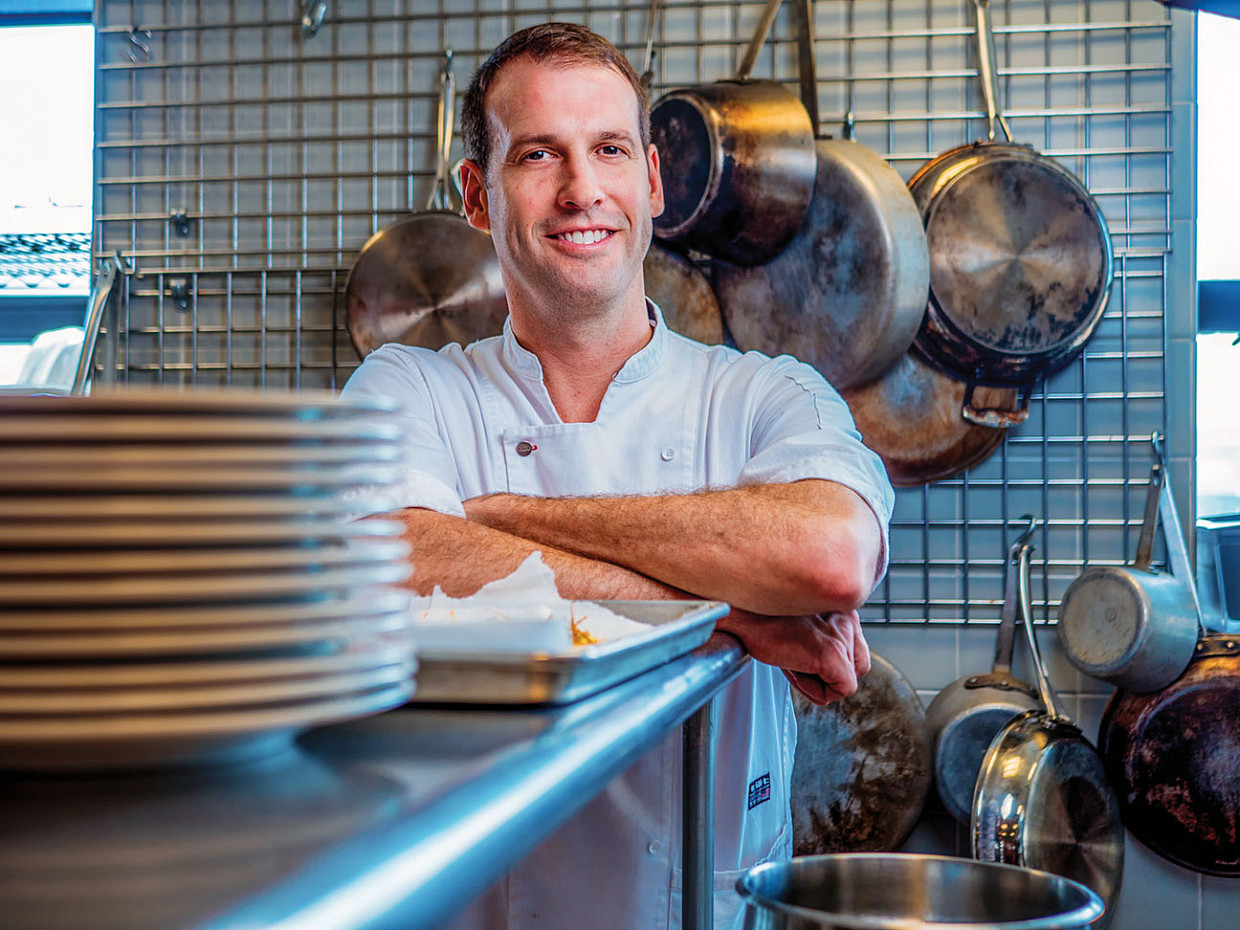
The Food Network
You were a history major at Ursinus and you graduated from Villanova Law School. How did you end up in hospitality at Drexel?
Yes, it is a little crazy. I always had a passion for food. I even did my demonstration speech in public speaking at Ursinus on how to make crème brûlée. Soon after completing law school, I realized I better try my hand at culinary, or I would never do it at all.
How did you get started in the field?
I enrolled in the College of Culinary Arts at Johnson & Wales University in Charlotte, N.C. I knew right away I wanted to specialize in Italian food—primarily pasta. Making pasta is very artisanal as well as therapeutic. After graduating, I worked as a sous-chef at Osteria and Vetri in Philadelphia. Along the way I learned that Drexel needed somebody. I’ve been full time at Drexel for three years now. I’ll also be finishing my doctorate in educational leadership and management in the next month.
What classes do you teach?
Drexel is the only research university in the United States that has a Culinary Arts major. I teach classes in Korean and Italian cuisine. I studied and taught in both South Korea and Italy. I teach the cuisine classes in one of our three test kitchens.
What is your ideal kitchen like?
I follow the French culinary phrase mise en place: Everything should have its place in your kitchen and be completely organized. I don’t want many crazy utensils and tools. A sharp knife, two or three good pans, two or three good pots, and a clean oven are all you really need. I think too often people have all this stuff they don’t use. You can cook most everything using the basics.
What is a chef’s most important tool?
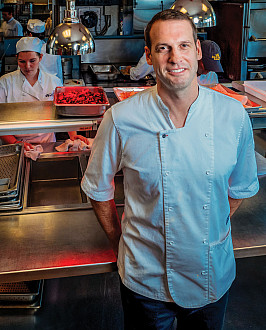
What are some tips you can pass on to the average cook?
Taste your own food before serving and don’t be afraid of salt. You need salt to bring out the flavors and taste. You should also use a lot of vinegar and lemon juice, which brightens dishes. Don’t be afraid of high heat, either. I see people cooking food at a low temperature and know they aren’t getting that flavor, that texture you need in certain products, especially meat, that high heat brings out.
You were on an episode of the reality show Kitchen Nightmares. What was that like?
That was a really fun fluke. Kitchen Nightmares was doing two episodes in Philly, one in which they utilized students at Drexel. The producer of the show remembered me because a year prior she had a birthday dinner at Vetri when I worked there. I was on the show to help a local restaurant get reorganized and back on track.
What do you see as the next food trend?
Philly is going to develop more and more into the food capital of the United States. When I was at Ursinus, the only great restaurant there was Le Bec-Fin. Now there are so many with amazing chefs. A lot of the restaurants also use local farms for their menu. People in general are trying to eat less meat. They want to embrace those vegetables and foods with flavors that aren’t so meat-driven.
Do you have a signature dish?
Any hand-rolled pasta. In the fall, I make a squash tortellini with local apples and nuts, and squash as the filling. I serve it simply with just brown sugar, butter, and a little honey.
What is your personal kitchen like?
Simple, just the way I like it: four burners, four pans and two pots. But I don’t cook as much as I should. With my job, it is so important to stay connected in the industry. I need to help my students find jobs in the best restaurants under the right chefs. If I have to go out and enjoy a great meal every night to do this aspect of my job, that is the sacrifice I have to make.
Do you work in an interesting or distinctive environment? Let us know! Email ucmag@ursinus.edu with the subject line: Office Space.
